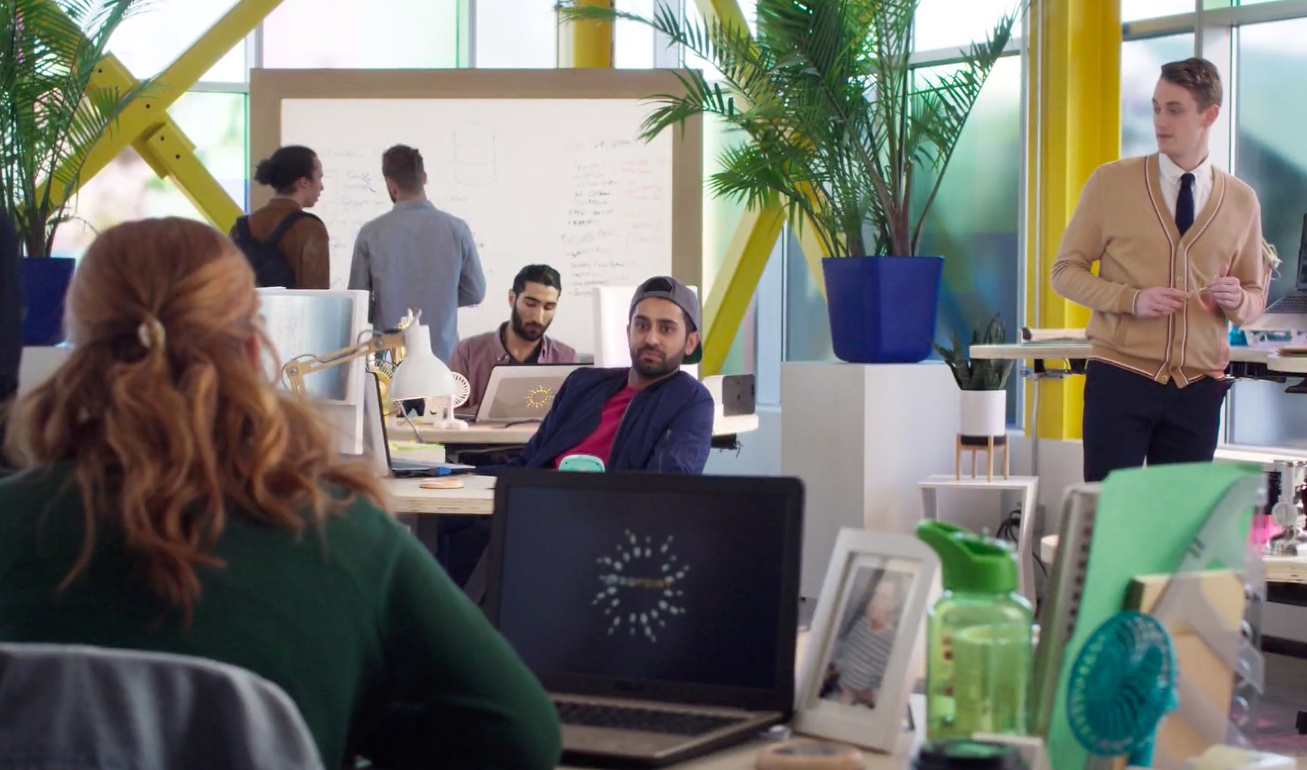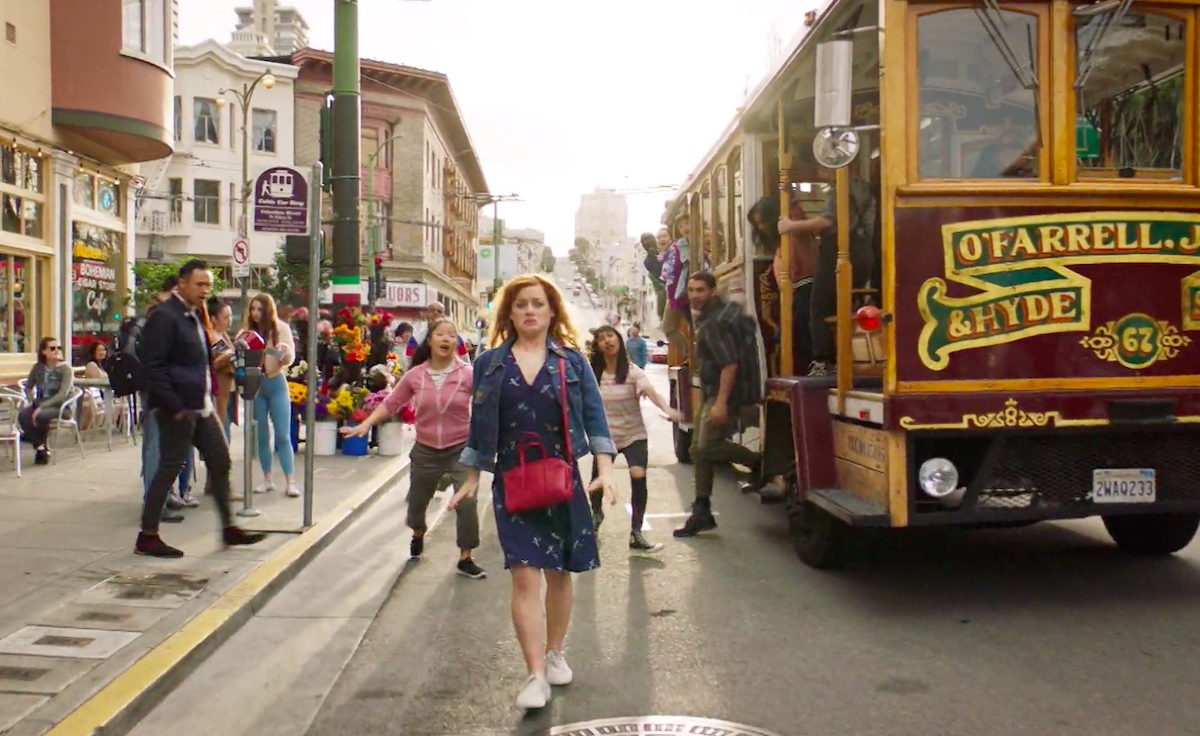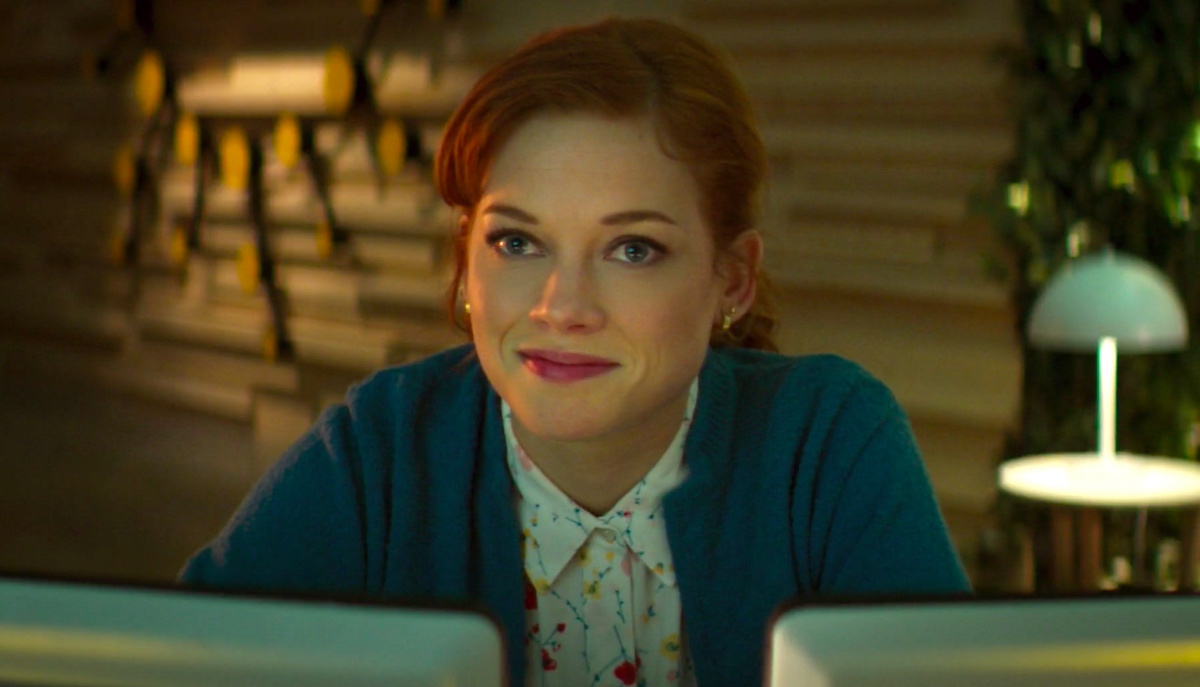NBC recently released the first episode of a new series titled “Zoey’s Extraordinary Playlist.”
This series is based in San Francisco, with the characters working at a startup called SPRQ Point, a tech company that specializes in smart devices and mobile apps.
Typically women in TV shows are portrayed as lawyers, writers and doctors, but rarely software engineers. To my surprise, this show included two women playing engineering lead roles. When realizing this, I went through a journey of emotions — from surprise, to excitement, to curiosity about how realistic the show was going to be, especially in comparison to the HBO series “Silicon Valley,” which did a surprisingly good job at depicting the day in the life of a software engineer.
The pilot did a few things well, and also got a few aspects of dev life … not so right. It starts with Joan (Lauren Graham) interviewing the main character Zoey (Jane Levy) for a promotion to engineering manager. This engineering manager position would be for the team that Zoey is currently a “coder” for. (More on that quoted part later.) During this interview, the boss, Joan, asks Zoey:
“How much of your work personally contributed to a project?” and “How significant do you feel your contribution was in terms of the end result?”
Let’s pause the episode for a minute and discuss this.
For a lead engineer or individual contributor role, that’s a valid question, as you would like to know, can this person build production level software? However, I don’t think that’s the best question for an engineering manager role. If this show was slightly more realistic, the question would be, “How did you help your fellow teammates achieve some goal?” Said otherwise, sometimes the engineers that have a large role in a project from a code perspective do not exactly make the best engineering managers.
Back to the episode: After her interview, Zoey walks out of the office where she meets the other software developers on her team — all male, of course.
One male developer asks her how her interview went. Another then proceeds to joke about the two women (Zoey and her boss) by saying, “I thought you two would be doing each others nails and buying tote bags off of Etsy.”
Pause again.

Zoey’s mostly male engineering team. (Screenshot via NBC.com)
First of all, I do not find that comment as annoying as the writers may have intended it to be. Naturally, two women in an interview setting would likely not be chatting about their nail grooming strategies. But on the other hand, would it be that bad if we did? It could be considered the equivalent to our male counterparts chatting about video games.
Personally, I have the unique opportunity of having a female boss. We both have a mutual respect for each other and a common goal of getting stuff done while being impactful to our organization. I would love to discuss things like tote bags from Etsy with her, although I am a Madewell tote bag kind of gal. I might just bring that up at our next 1:1.
Jokes aside, reflecting on those two scenes from a women-in-tech perspective, I found it refreshing that the hiring manager of the engineering team and the lead engineer were both female. It’s not very common but I think it is a good step from a society perspective that we are showcasing women in these positions. There is the possibility that a young girl will see such a TV show and say, “I want to be just like Zoe!” And I can say for certain there wasn’t a lead character playing a software engineer on primetime TV when I was growing up. Kudos to NBC for crafting such a cast of characters.
Continuing on with the plot, there are serious aspects to this show. Zoey’s dad has a rare neurological disease that prevents him from living a normal life. This is actually a key detail to the plot.
Zoey starts to feel headaches induced by stress. Her mom suggests that she get an MRI to ensure it is not caused by the same disease her father has. During said MRI, the technician plays R.E.M’s “It’s The End Of The World As We Know It (And I Feel Fine)” to calm Zoey’s nerves — which is then followed by a sudden earthquake. As a result, she acquires an ability for strangers to share their private thoughts and feelings via the act of singing and dancing.

Zoey being serenaded in San Francisco. (Screenshot via NBC.com)
Soon after Zoey has acquired this mind-reading capability, Joan gets the team together to give a crucial update: There is a bug in the health app that her team built. The boss then proceeds to write “5 DAYS to LAUNCH!!” on a white board.
Pause again.
I may be being too critical of this musical dramedy, but I do not know of a single engineering leader who would write such words on a whiteboard when dealing with a critical issue days prior to launching a feature. Maybe give me some Splunk logs, steps to recreate the issue or some data points from QA suggesting how this defect was caught? HBO’s “Silicon Valley” equivalent of this scene would have likely included the main character drawing a diagram depicting the architecture of the complex system his team was building. It would have been so great to see a female engineering leader do something similar, i.e. portray a very technical understanding of the problem during a critical situation.
Let’s fast forward past a scene where one of her male coworkers professes his love for her via song and dance, and Zoey figures out the cause for the production issue right before launch.
Zoey quickly rushes to tell the team she knows how to fix the issue and asks them to revert any code changes made recently, while also asking for all of the “coders” to prepare for “a build to ship” and “wait for her final push.”
It feels a bit unnatural how they insert a bit of software developer jargon like “build to ship” and “push” in reference to pushing changes to a Github repository, I assume. Additionally, the use of the word “coder” in this TV show is incredibly comical. I have never heard anyone call themself a “coder.” Software developer, dev, engineer, but coder … not so much.
I do wish some of the scenes that included references to software were slightly more realistic. Although, this realism might not be as effective for folks that are not in the tech industry, and a happy balance could be to include just a touch of software jargon to not detour from the greater storyline.
Overall, I think the plot and characters do lend itself to a good hour of television. If you are looking for a lighthearted show that has hints of what it’s like to be a female engineer followed by snippets of musical theatrics, this show just might be for you.
From a musical “playlist” perspective, songs sampled in this pilot episode include The Beatles’ “Help!,” The Weather Girls’ “It’s Raining Men” and my favorite, DJ Khaled’s “All I Do Is Win.” Ironically, I listen to “All I Do Is Win” every time my team solves a critical production issue days before customer launch.
The original pilot episode re-airs on NBC the beginning of February, followed by additional episodes.
Join the conversation!
Find news, events, jobs and people who share your interests on Technical.ly's open community Slack

Delaware daily roundup: Delmarva Power vendor stats; DelDOT's $15M federal grant; 50 best companies to work for

Delaware daily roundup: Over 4,000 Black-owned businesses uncovered; Dover makes rising cities list; a push for online sports betting

Philly daily roundup: East Market coworking; Temple's $2.5M engineering donation; WITS spring summit


